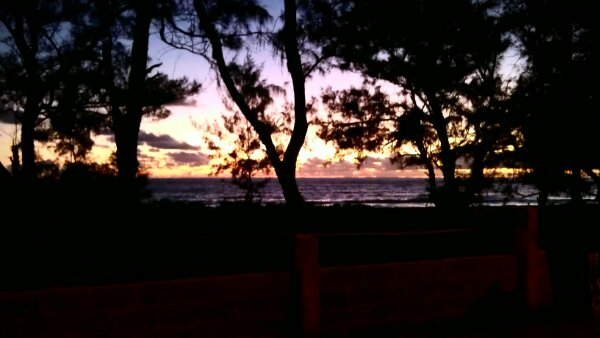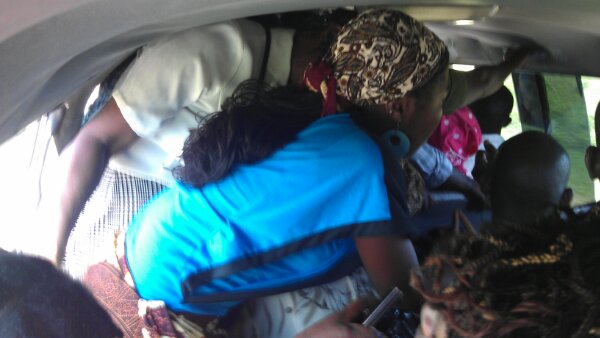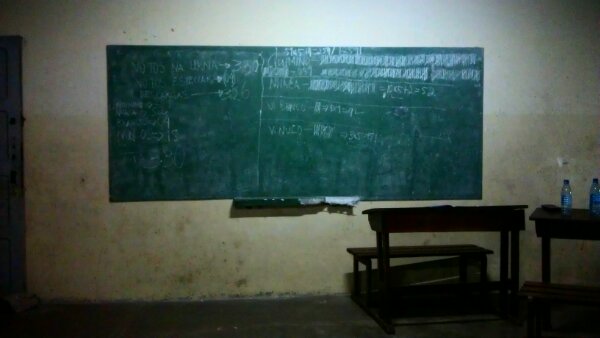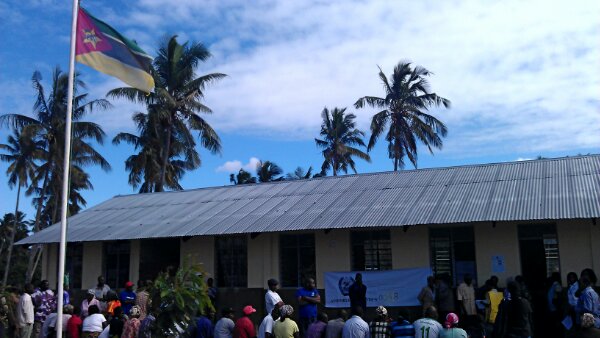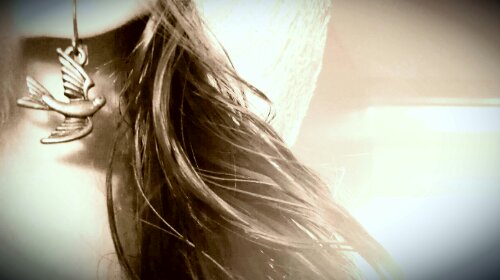Category: Africa 2012
Why did Mamá vote?
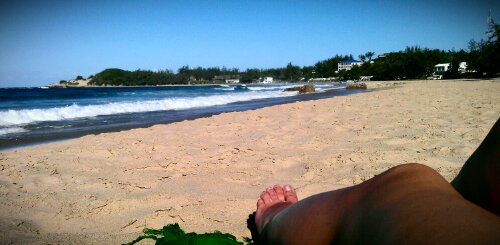
I bought some mini-bananas from an old lady on the beach. She sat down next to me and I bought cashew nuts for both of us. As we were eating and talking about her 13 children and her life going back and forth every day between Inhambane and Tofo, I noted her index finger had traces of ink on it.
“Did Mamá go to vote two days ago?”
I asked her the simple question why she had chosen to do so and got the following explanation:
“If you have two pineapples, one of them needs to be the father. And the father needs to take care of all the other fruits in this basket. The people have the responsibility to choose the father that will make sure that we are safe. In Inhambane we vote – and that is why I can leave my fruits here overnight and know that nobody will steal them or beat me. You can sit here and nobody will rob you, this is the land of good people and we show the leaders that our security and future is important to us. The only way to show this is by going to vote, it’s not very important who wins in the end – the important thing is that we can feel safe and continue working, and that we show that we care.”
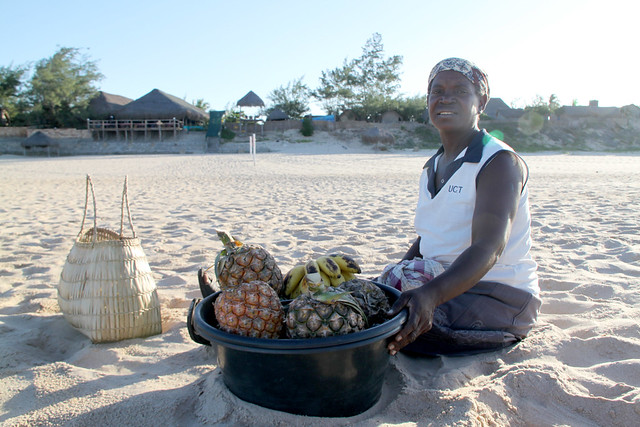
Mamá left to sell her pineapples and I stayed with a dog that has decided to become my friend. People have taken their surfingboards out, the sun is starting to set, and I’m very much enjoying the tranquility in Tofo.
Overload
The right to know your rights
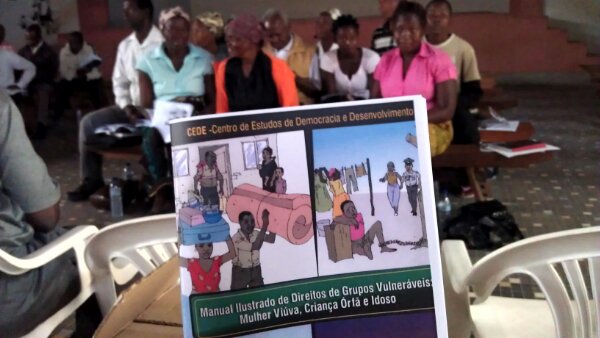
I was literally falling asleep when writing yesterday’s post, which also is the case now – so please excuse any grammatical disasters.
Today we got up early again and went off for meetings with our partnerorganisations here and around Inhambane. Among the different places we saw, we visited a church in Jangamo where men, women and youth representing different communities were present to learn about what the Mozambican law says about human rights. The Center for Democracy and Development studies has created a fantastic booklet with drawings that explain the law with examples from a traditional Mozambican context. Some of the things we take for granted are obviously not so simple for other people and some might even be prepared to debate for their right to be traditionally married without their own consent. Meanwhile, some people have never been presented with alternative ways of understanding and handling a given situation, nor have they been aware of what the law says. Letting people know that domestic violence or sexual abuse of children is against the law, and telling both women, men and youth so – helps them to understand their own rights, and to respect the rights of others.
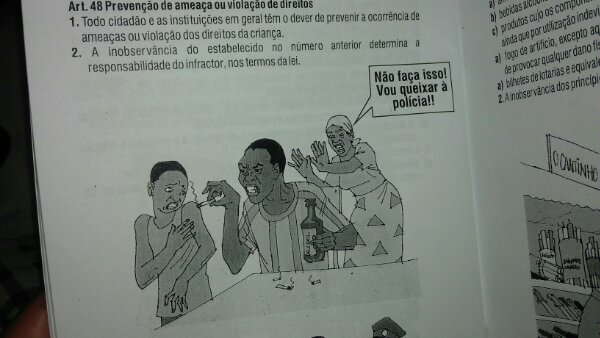
Democracy
Inhambane
Flying
The Chikenbus, the waterfalls – and Zim always.
I didn’t spend much time in Zimbabwe, unfortunately, as I only got a visa for four days – but still – it would have been difficult to continue my travels had I extended my stay – so it turned out to be the only option.
I arrived to Harare in the afternoon, after a long, comfortable and rather interesting busride with top-quality views. I then spent the day walking around the city, without taking any photos. I got a great impression of Harare, not least because of the very friendly people I met there that were very helful and friendly. Beside that, it was clean, very safe and felt considerably ordered. I spent the first night in Zimbabwe at a friends place, or actually, a friend I have known for some time through twitter – have I reminded you about how awesome social media is?
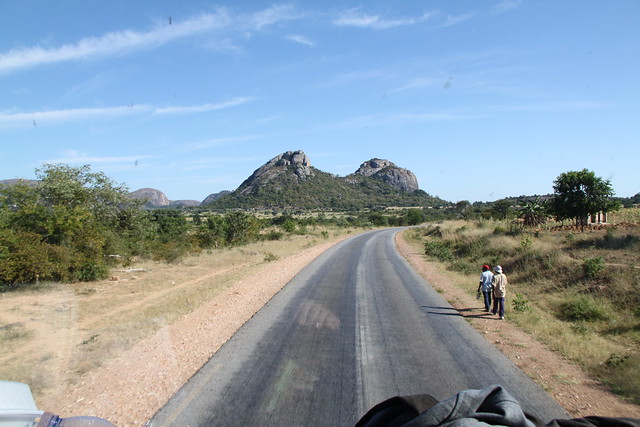
One of the first funny randoms I noticed on my trip was when I was told to “turn right after the robots!” I understood that the person must be referring to the traffic lights so I giggled, said thank you and walked on. When the second person started talking about robots, I realized that this simply was the way to call them, and continued my trip doing the same – always giggling on the inside, imagining robots standing on the road.
I realized I missed out on some good shots just of the simple reason that I kept the camera in the backpack. Made sure to take it out just when I left Harare – and it never got back in there again.
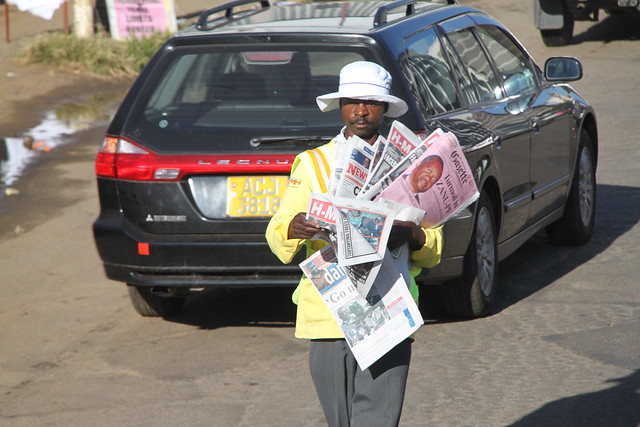
The next day I went to Victoria Falls through Bulawayo – another busride that I wrote about at that point. Victoria Falls welcomed me by a young girl named Megan, and her mother, driving me to Shoestrings Backpackers out of mere kindness. The moment I checked in at the hostel, I met a new friend with whom I spent the rest of the evening – chatting away about banalities and non-banalities, minds flowing. I smiled at his princess Diana accent, effortless eloquence and noted his voice as particularly beautiful before even realizing he could sing.
On my second day in Vic Falls, I took a walk and met the tourist police who were the kindest officers I have encountered so far here in Africa. (Oh, the horrors of Mozambican traffic police!) I walked around with miss Magarita for a while, looked at the river, visited the crafts market, survived a heavy rainfall and later went back to Shoestrings where I met Tinashe again.

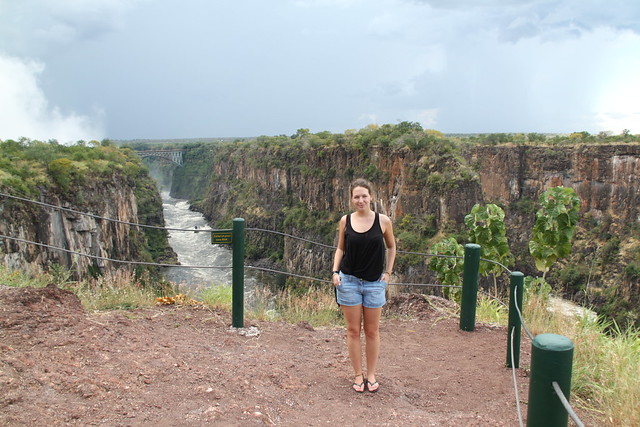
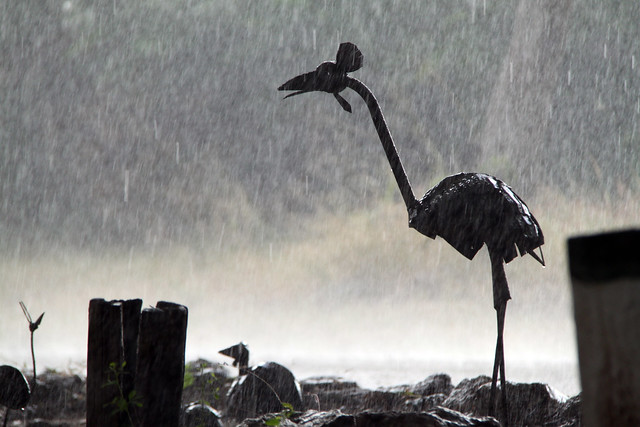
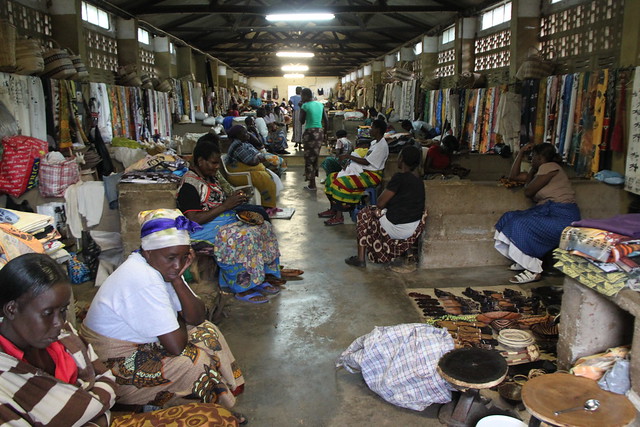
We went with lady Leanne to the place where Tinashe, or just Nash, usually rehearses with his band. Leanne is their manager, together with Eddy – and they are seven members in the Chikenbus band who play various instruments and sing. I got the opportunity to hang along with Chikenbus to a fundraising event for the Victoria Falls Anti Poaching Unit and as we drove out into the bush, we encountered a big fire and a red carpet in the middle of nowhere, next to the railway. We set up the sound equipment and the Chikenbus started sound checking.

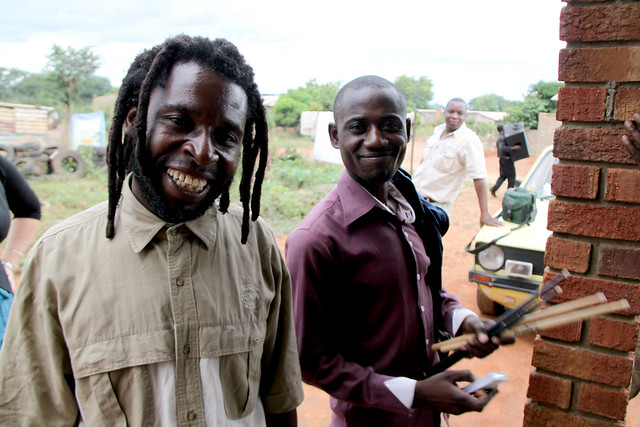

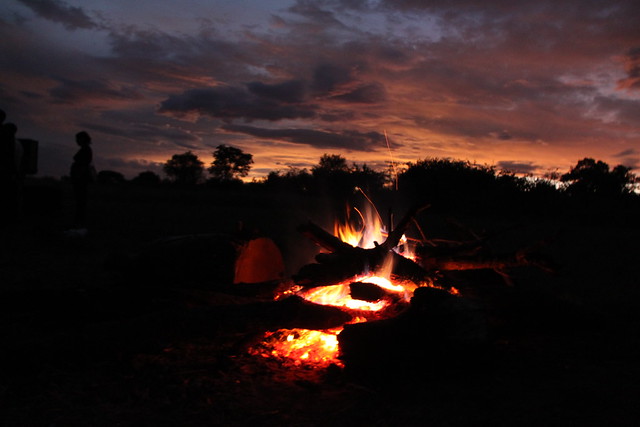
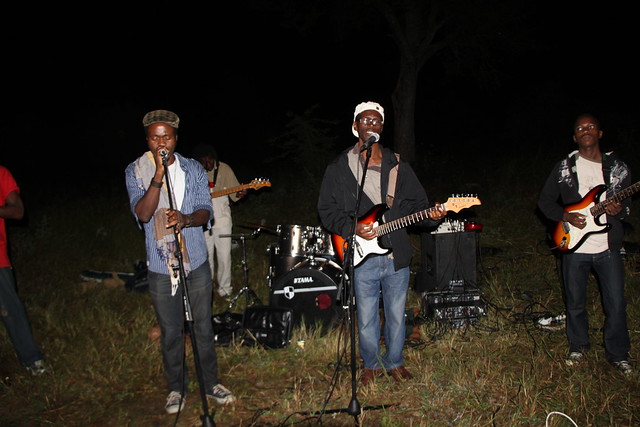
A part of the fundraising event for VAPU was the steam train ride, on which the people arrived. The band played tunes which made it impossible for me to put the band in a box by category or genre – there was some reggae, there was some rock, there were some classic Zimbabwean beats – and then they played “in the jungle” and everybody danced. They were setting the perfect mood and I was completely enchanted about the Chikenbus’ own lyrics and tunes, that got stuck in my mind for many days to come.
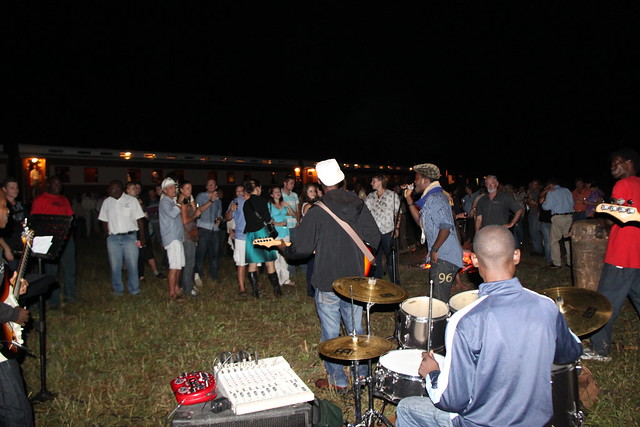
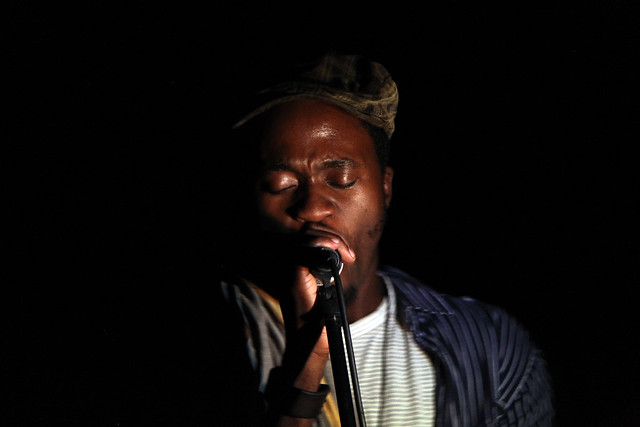
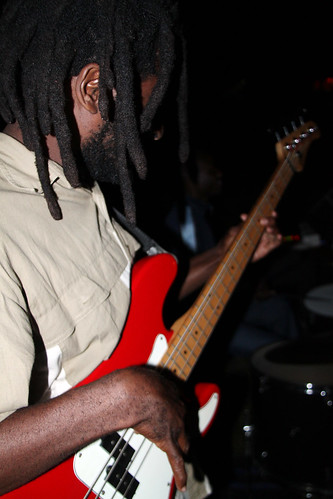
After the show we got to board the train as well, where drinks were bought with coupons and where one of the carts was specially equipped for dancing. Party train became a reality, and we danced our way back to the beautiful and happy town of Victoria Falls.
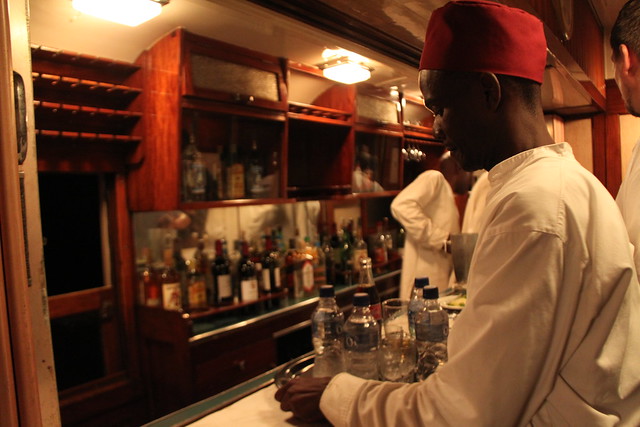
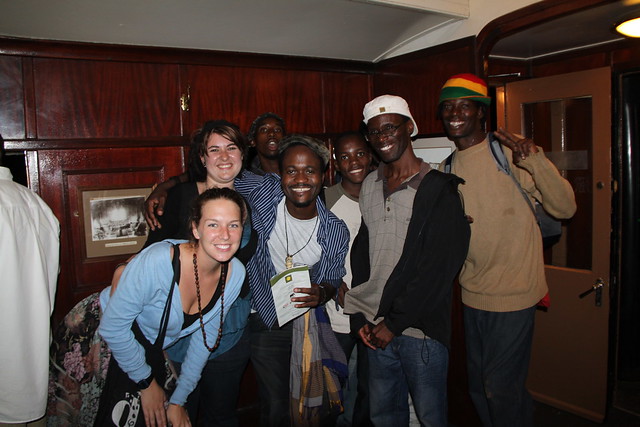
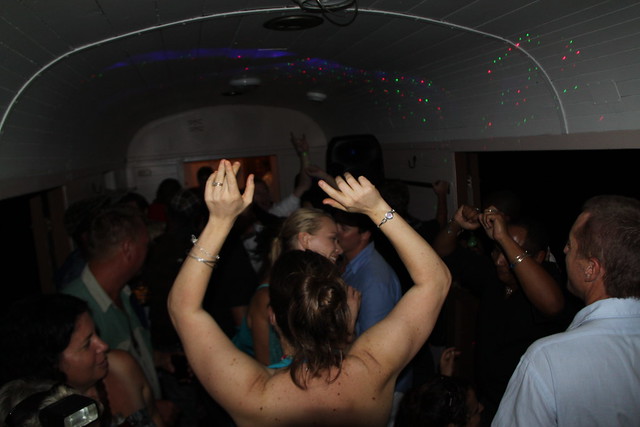
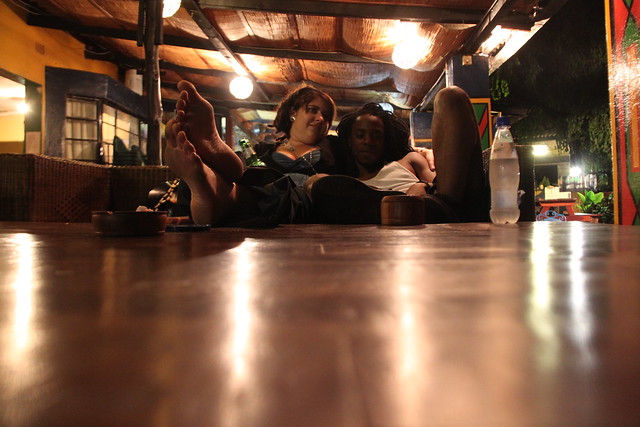
The next morning, after a long night of talks, stars and theories, I met Arnold. He is a Zimbabwean who lives in Cape Town and was passing by Vic Falls as a part of his work, we had a good breakfast talk and decided to go visit the Victoria Falls together.
The waterfalls were amazing. We got raincoats but decided not to wear them and instead let the spraying water rain down on us. There is something about water that affects me tons, the energy it contains makes me skip around like a kid and become so happy I feel like bursting of joy. I put my camera in a plastic ziplock bag and we continued taking pictures, people laughed at us because we were so “wild” not wearing raincoats – living on the edge, I tell you! haha. We crossed the bridge to the Zambian border, people were bungy jumping, we were approached by aggressive baboons who stole our apples and to sum up – we walked for very long and it was a great day.
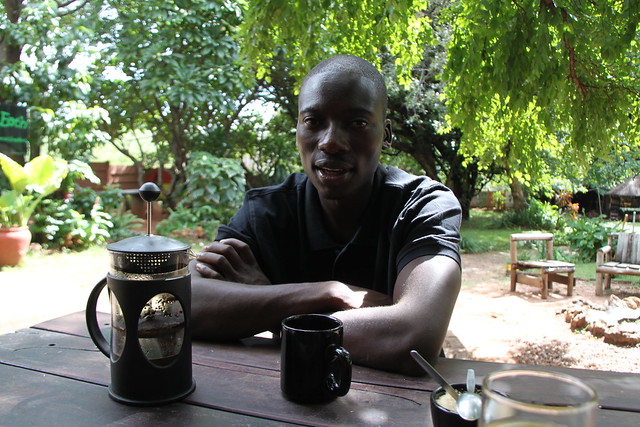
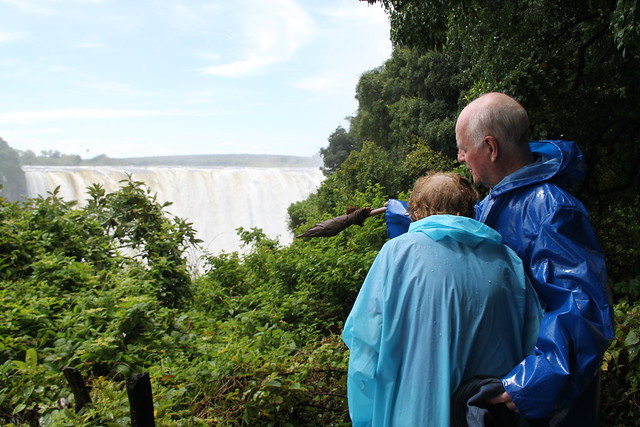
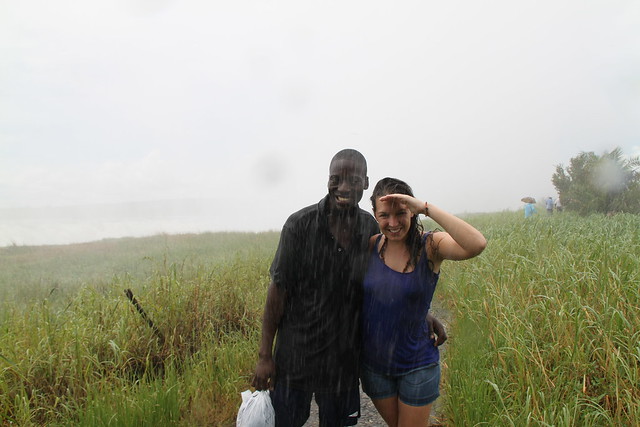
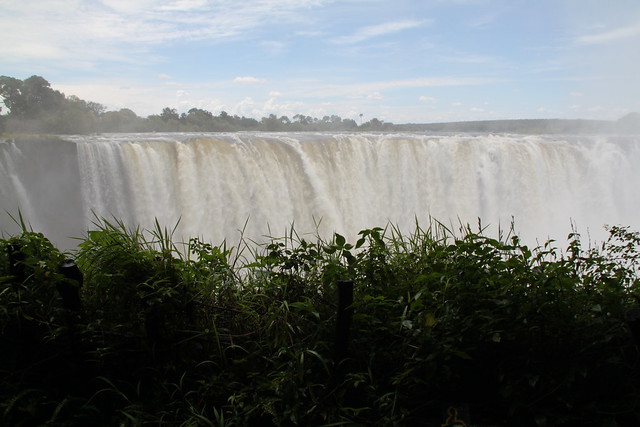
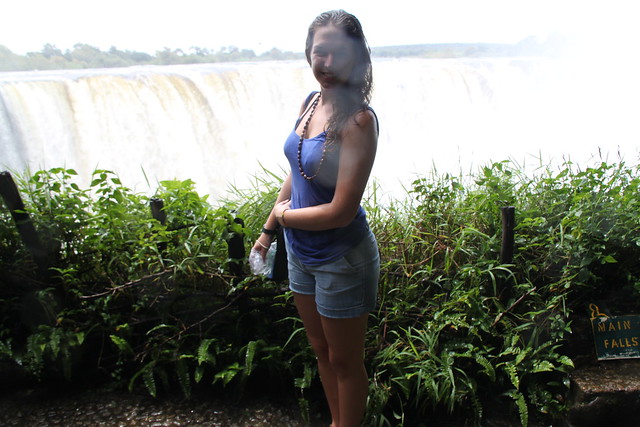
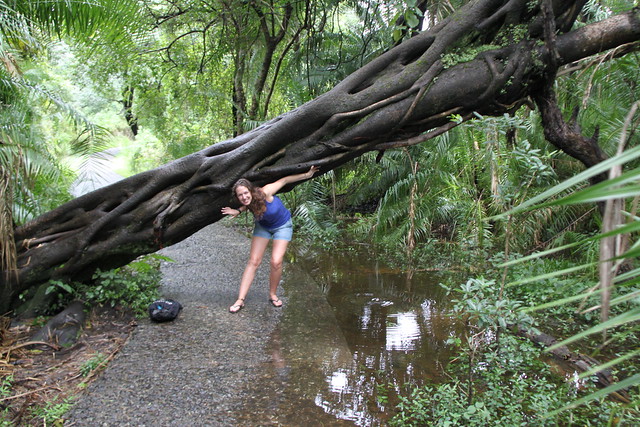


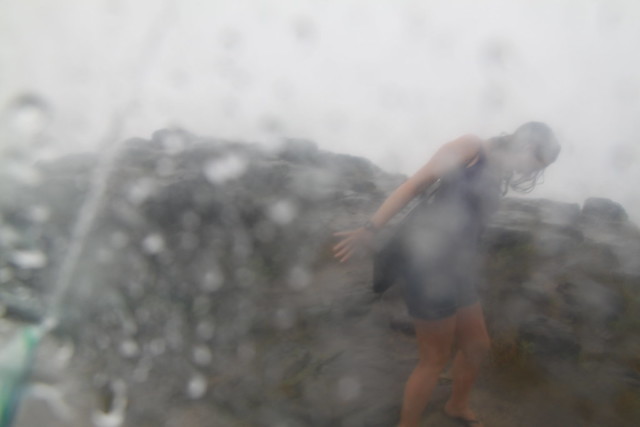
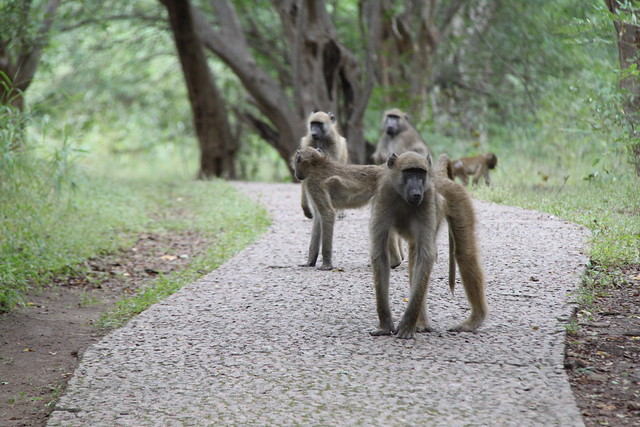
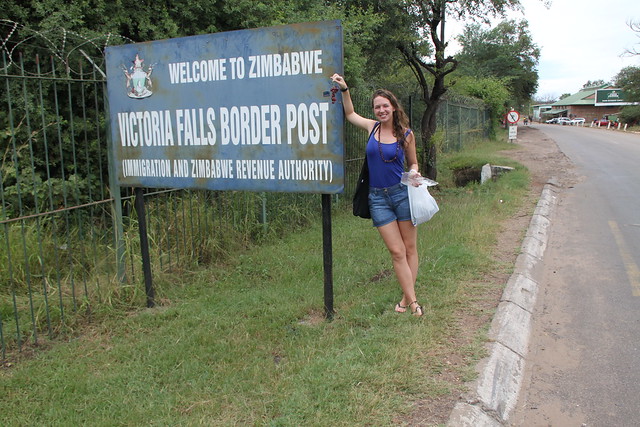
I met Tinashe for the last time and we shared some more hours of talking and simple, unforced friendship. People like this are the kind of individuals I search for when moving around the world, where conversation flows, when minds work well together, and when you know that this is a friend you always somehow will stay in touch with. I recorded him singing one of the Chikenbus songs and Nash dropped me off at where I hitched my ride to cross the border to Botswana.
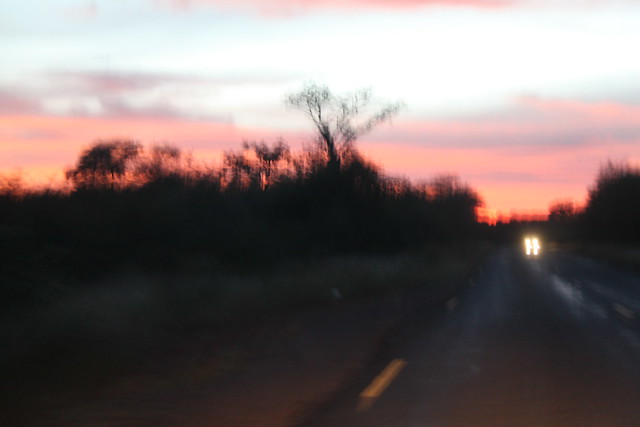
Vic Falls and Zimbabwe made a huge impression on me. Maybe to most part because of the really great people I met and spoke to but also because of the landscapes and the positive energy. There was something about Zim that I will keep with me always – until I return.
On the road
I spent many hours in buses and cars on my easter trip. As some of you know, I keep notes of every busride, its cost and the hours travelled, so in total, during the 15 days I was away, I spent just above 110 hours sitting in some sort of a moving vehicle.
Spending time on the road is not an issue for me, it is a huge part of the experience and I find it extremely interesting. The people I meet, the things I see, the sounds I get to hear and sometimes the smells I have to endure.
Here’s a sneek peek into the moving parts of my two weeks of travelling Zimbabwe, Botswana and Namibia. Hopefully you will get a feeling of what it’s like.
The first video is from the Intercape bus from Johannesburg to Harare, which was the first time I encountered the fashion of collective travel-prayer. I had just met Lloyd, Prosper and Mercy and we were on our way out of Joburg at this moment, in the beginning of what turned out to be a very comfortable 19 hour busride.
This second video is about 12 hours later, on the same bus, after having crossed the Zimbabwean border. I was indulging in the views and we were reminiscing old stories from the past and guessing artists as the very randomly chosen music was shuffling through.
This video is from when I was forced to hitch-hike when the minibus I had taken from Kasane in Botswana broke down on in the middle of a highway. I hitched a ride with a huge petrol truck that took me and an old gentleman the two hours to the nearest town, Nata, for free.
The next video is from the local bus between the small town Ghanzi and the border between Botswana and Namibia, where I met the Kalahari girl Ketshepile and her little son Roonyi. This is a bus I simply jumped on after arriving to Ghanzi, because some people pointed me to it. It was completely full with people in the most random traditional clothing and what struck me the most was the fact that a lot of them seemed to be jumping on and off in the middle of the desert. This bus dropped me off just before the Namibian border, where I had to walk to get my passport stamped, and ended up on the other side by myself, basically waiting for a car to pass by and pick me up.
The last video is from when we were driving the ~400 km from the Namibian desert to Windhoek. Baldwin had dancehall, oldschool R&B and traditional Zimbabwean music in his C220, Nate Dogg was making his own party in the back seat, and I insisted on driving us both ways, as I was enjoying it so much. Never-ending highways, dirt roads and that tarred straight, beautiful, empty road in the middle of the desert that invited me to step on the gaspedal – it was blissful. After summing up the distances, I realized that I had driven almost 1000km in Namibia and it was really great to finally get my fix of driving.
So all these times were great, but you need to remember that if you can’t luv me now don luv me laitah! ..haha
Almost back
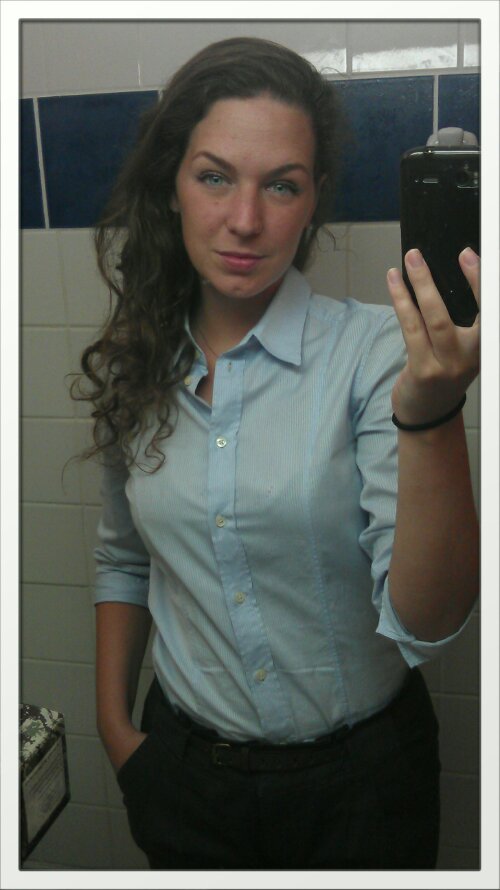
I’m back in office after a rather rough return to Maputo. Suffered from some sort of fatigue and breakdown in Joburg and couldn’t do all that shopping I was hoping to do. Instead, I went to the bus station and slept on my bags the entire day while kind strangers brought me fruit and water. At night, the ten hour busride to Maputo was spent next to a very inspiring, happy and energetic lady who wouldn’t stop talking.
Her name was Viola and she was 52 years old. She got married at the age of 14 with a 17 year old boy who was serving in the military at the time and they spent the next five years apart, writing love letters.
She had the time to obtain a University degree, he became a doctor, together they got nine children. They are still childlishly in love and all of their children now have a higher education, some are doctors, some lawyers, some sociologists. They live all over the world, in Italy, Norway and Algeria. And whenever possible, last time for Christmas, they all meet. The parents, the children, their partners, and the 8 grandchildren – and together they read those old loveletters and laugh. Apart from that, this lady educates young people about domestic violence and premature marriage, and teaches both girls and boys about how important it is to finish school, truly fall in love and trust a partner before marrying. Viola seemed genuinely happy and kept repeating how lucky and thankful she was. And when she used my cell to call her husband to pick her up, she giggled and used that sweet kind of voice, you know which one.
Back in Maputo my very dear supervisor from work took me to a clinic and after many hours of questions and confusion and a significant dose of persistance I found out that I didn’t have malaria but some sort of infection in the body that they couldn’t yet define.
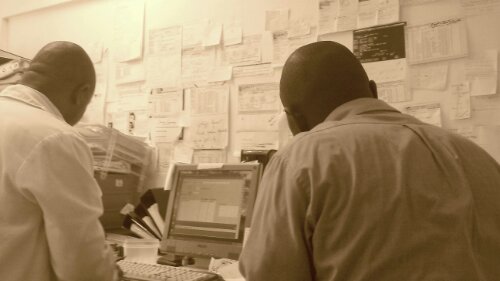
“Your blood test results? Who are you? Oh, wait.. they should be here somewhere.. uhm.. okay.. so, we made a mistake and you will have to give us another blood sample. Yes. And wait for another two hours. And oh, yes, you will have to pay again because we will have to run another test.”
I didn’t pay anything extra. Nor did I give more blood. But I did go “Excuse me for being rude now but you do see how incredibly outrageous this is, don’t you? Please use the blood I gave you earlier, run the test you’re supposed to, and please give me the results that the doctor needs. Oh, and I’m very sorry but I will not pay again, I am sure you understand that it’s not an option to charge me for this confusão.” and got my results within fifteen minutes. A true T.I.A* moment. I got a prescription for antibiotics but decided to wait a day, listen to my body and see if I can handle this without having to poison myself.
Today I’m not yet completely back on track but at least back on my feet and back in office. I’m feeling tons better compared to yesterday and the day before, so it might be that I will survive this fight on my own, and become more resistant to whatever it was that provoked this breakdown.
*This is Africa
